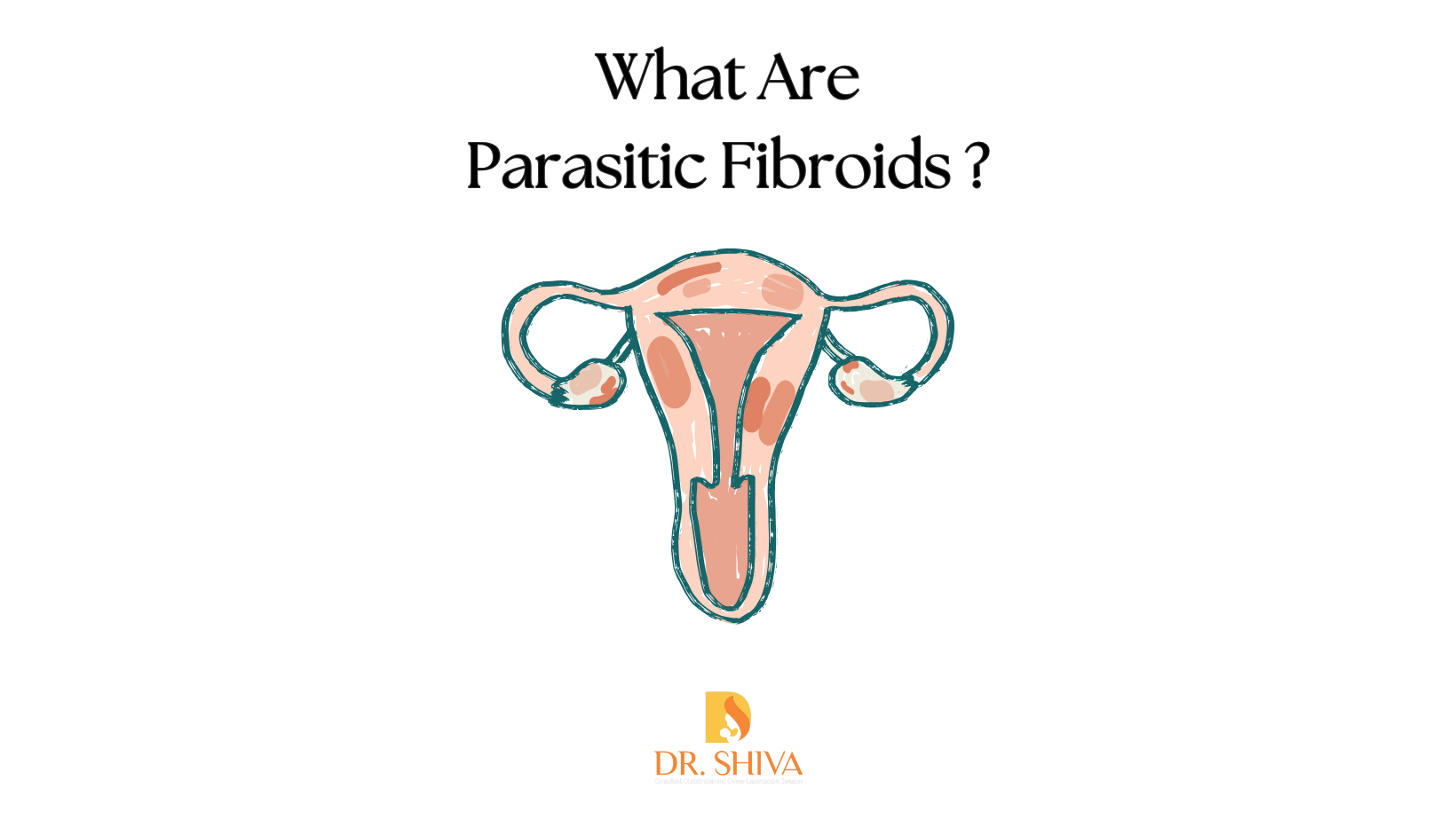
Uterine fibroids are growths in the muscle wall of the uterus, a common occurrence for many women. However, when a fibroid deviates from the norm, it can develop into a parasitic fibroid—a rare condition we’ll explore in this blog.
What are Parasitic Fibroids?
Normally, fibroids receive blood supply from the uterus. However, parasitic fibroids detach and develop their own blood supply from nearby organs or tissues. This makes them different from other fibroids.
How Do They Occur?
There are two main theories for the development of parasitic fibroids:
- Spontaneous Detachment: A pedunculated fibroid (one with a stalk) can twist and lose its connection to the uterus, then find a new blood source elsewhere.
- Iatrogenic Origin: This is more likely after surgery (e.g., hysterectomy) using morcellation techniques, where the fibroid is cut up during removal. Tiny fragments may implant and grow in other locations.
Symptoms and Diagnosis
Parasitic fibroids can mimic symptoms of other conditions, making diagnosis challenging. Some potential signs include:
- Pelvic pain
- Unusual bleeding
- Pressure or discomfort in the abdomen
- Difficulty with urination or bowel movements
Imaging tests like ultrasounds, CT scans, or MRIs can help identify and locate the fibroid.
Treatment Options
The approach to treating parasitic fibroids depends on their location, size, and symptoms. Common options include:
- Surgery: This is the most common treatment, aiming to remove the isolated fibroid. Laparoscopic or robotic surgery might be preferred for minimally invasive removal.
- Embolization: This procedure uses very small particles to block the blood supply to the fibroid, causing it to shrink.
- Hormonal Therapy: Medications can help shrink fibroids and may be used before or after surgery.
Living with Parasitic Fibroids
Due to their rarity, there’s limited information on the long-term management of parasitic fibroids. However, regular follow-up appointments with your doctor are crucial to monitor the fibroid and address any new symptoms.
Commonly Asked Questions About Parasitic Fibroids
- Are parasitic fibroids cancerous? No, they are not. Parasitic fibroids, like regular fibroids, are benign growths.
- Can I prevent parasitic fibroids? Unfortunately, there’s no guaranteed way to prevent them. However, if you’re having a myomectomy (fibroid removal surgery), discuss minimizing the use of morcellation techniques with your doctor.
- Will I need another surgery after treatment? While uncommon, there’s a slight chance the fibroid could recur in a new location. Regular checkups are important for early detection and monitoring.
- Can I get pregnant with a parasitic fibroid? The answer depends on the fibroid’s location and size. Discuss this with your doctor if pregnancy is a concern.
Conclusion
Parasitic fibroids are a rare condition. If you experience unusual symptoms after a fibroid diagnosis or surgery, consult your doctor promptly for proper evaluation and treatment. With the right approach, you can manage this condition and maintain your well-being.


Recent Comments